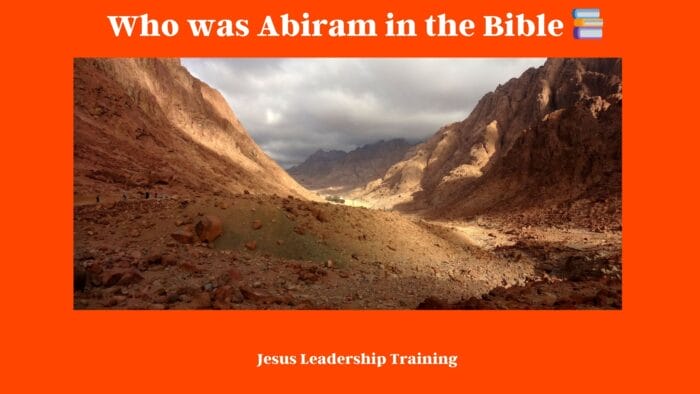Who was Abiram in the Bible – Abiram is a notable figure in the Bible, specifically in the Old Testament. There were two individuals in the Bible with the name Abiram, but the most prominent one was the son of Eliab from the Tribe of Reuben. Known for his involvement in a conspiracy against Moses and Aaron, he joined forces with his brother Dathan and Korah to challenge the leadership and legitimacy of Moses.
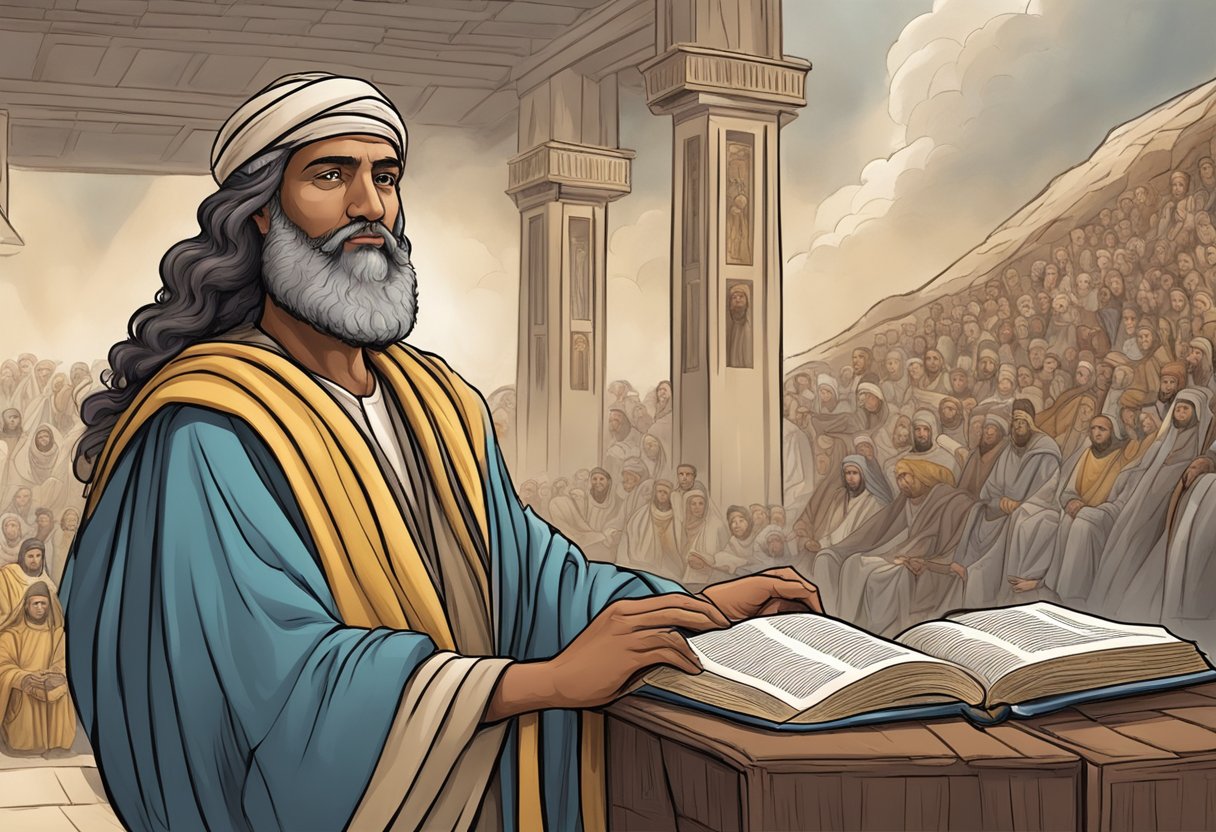
The story of Abiram is a telling one, as it portrays the struggle for power and the consequences of disobedience among the Israelites during their journey through the wilderness. His actions, along with those of his co-conspirators, ultimately led to their downfall and severe punishment from God. As his tale unfolds in the biblical narrative, the complex nature of Abiram’s character and his position within the Israelite community are revealed.
Table of Contents
Key Takeaways
- Abiram plays a significant role in the Old Testament, known for conspiring against Moses and Aaron.
- He was a member of the Tribe of Reuben and had close family ties, including his brother Dathan.
- Abiram’s actions and ultimate punishment provide valuable lessons in the context of the Israelites’ journey and the struggle for power.
Abiram in the Torah
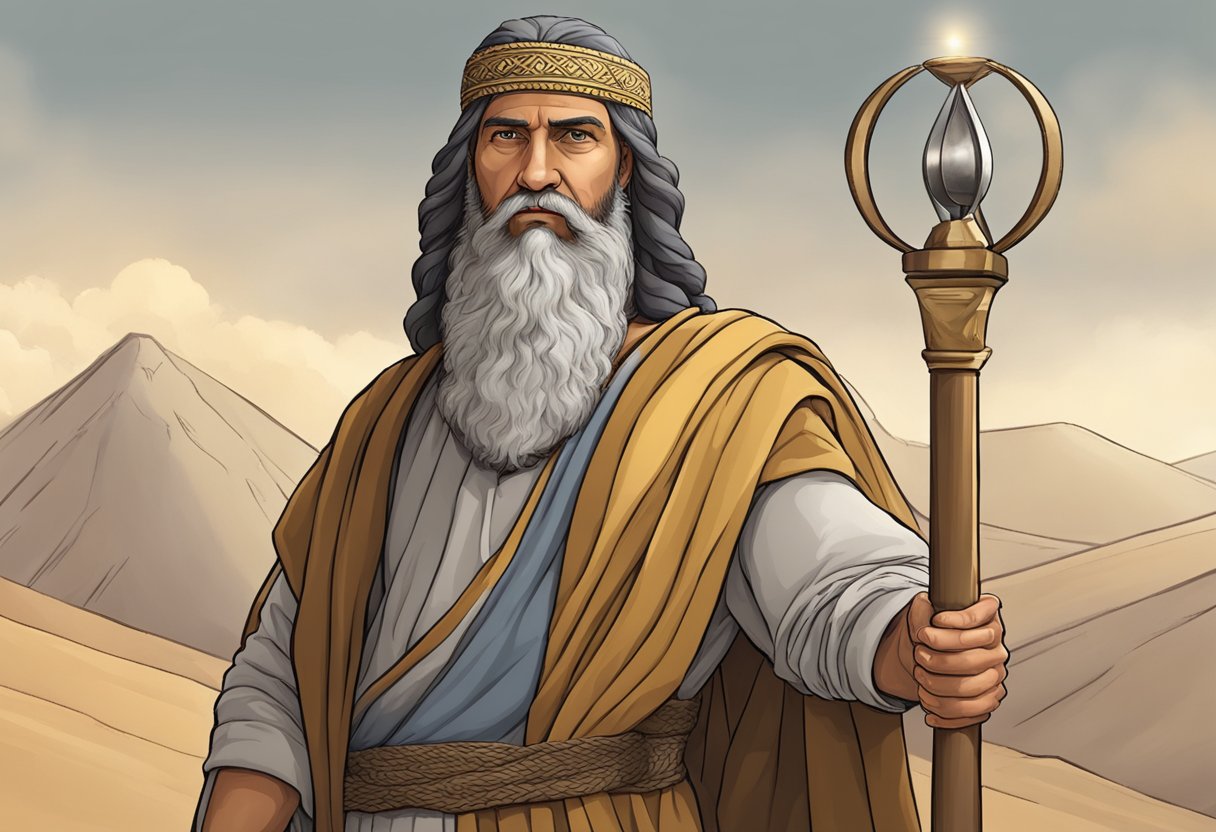
His Connection to Reuben
Abiram was a member of the Israelite tribe of Reuben and the son of Eliab. His name in Hebrew, “אֲבִירָם,” translates to “my father is exalted.” He had a brother named Dathan, and together, they played a significant role in an uprising against Moses and Aaron during the Israelites’ journey through the desert1.
Who was Abiram in the Bible
ere is a set of bullet points about Abiram in the Bible:
- Abiram was a leader of the Israelites who rebelled against Moses and Aaron during the Exodus from Egypt
- Along with Dathan and On, Abiram challenged Moses’ and Aaron’s authority as leaders appointed by God
- They accused Moses and Aaron of acting like dictators by claiming sole authority over the Israelites
- The rebellion occurred shortly after the Israelites left Egypt, while they were still in the wilderness of Paran
- Abiram and the other rebels gathered a group of followers and confronted Moses and Aaron directly, refusing to follow their commands
- God was angered by their rebellion and refusal to acknowledge his appointment of Moses and Aaron as leaders
- God caused the earth to open up and swallow the rebels whole, including Abiram, as divine punishment for their defiance and challenge to God’s authority
- Abiram and the other rebels died along with their households as the earth closed over them, ending their rebellion against Moses and Aaron
- The rebellion served as a warning to the Israelites not to challenge or refuse to obey the leaders appointed by God to guide them
The Rebellion Against Moses
In the Torah, Abiram and his brother Dathan, along with Korah, led a rebellion against Moses and Aaron. They were dissatisfied with the leadership and questioned Moses’ authority, accusing him of taking too much power2. They also complained that the Israelites had been led out of Egypt, a land flowing with milk and honey, and into the desert to die3.
This rebellion led to a test where Moses instructed the 250 rebels to bring censers filled with fire and incense the following day. He declared that God would show who was truly chosen by accepting or rejecting their offerings4.
The Punishment
The next day, when the rebels arrived with their censers, God revealed his choice by making the earth open and swallow up Abiram, Dathan, and Korah, along with their families and possessions5. This act was a clear demonstration of God’s disapproval of their uprising. As a further consequence, a fire consumed the 250 men who had joined the rebellion6.
Following these events, the Torah conveys a warning to the Israelites about the dangers of challenging the authority appointed by God and serves as a reminder of the divine selection of Moses from among the people7.
| Event | Description |
|---|---|
| Rebellion Begins | Abiram, Dathan and On gather followers and confront Moses and Aaron directly, refusing to follow their commands. |
| Accusations Against Leadership | The rebels accuse Moses and Aaron of acting like dictators by claiming sole authority over the Israelites. |
| God’s Anger | God is angered by the rebellion and refusal to acknowledge his appointment of Moses and Aaron as leaders. |
| Divine Punishment | God causes the earth to open up and swallow the rebels whole, including Abiram and his household. |
| Punishment Complete | The earth closes over the rebels, ending their lives and households as divine punishment for their defiance. |
| Warning to Israelites | The rebellion serves as a warning not to challenge or refuse to obey the leaders appointed by God to guide the Israelites. |
Footnotes
- Abiram – Wikipedia ↩
- Who Were Dathan and Abiram? ↩
- Numbers 16:1-3 ↩
- Numbers 16:16-19 ↩
- Numbers 16:31-33 ↩
- Numbers 16:35 ↩
- Who was Abiram in the Bible? ↩
Interactions with Other Bible Characters
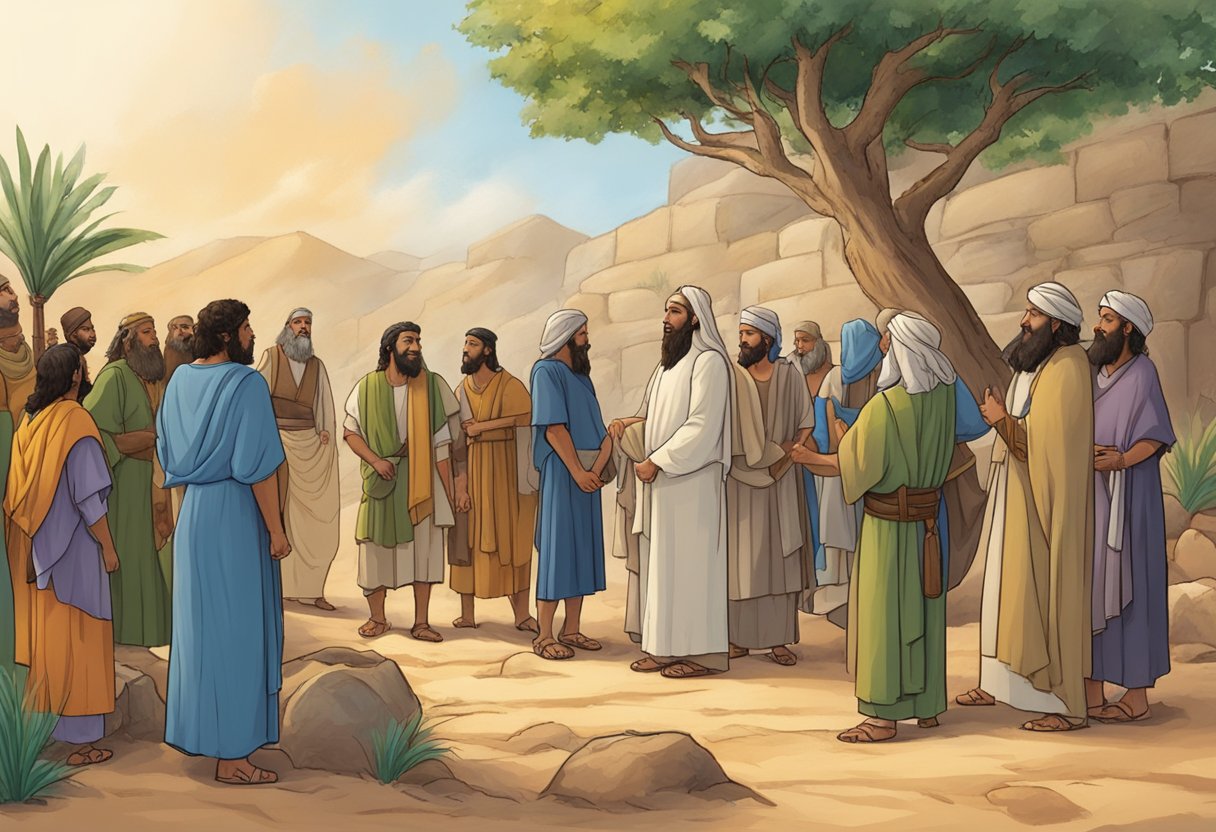
Role of Aaron
Abiram, a member of the Tribe of Reuben and son of Eliab, had significant interactions with other Bible characters, including Aaron. Aaron, the brother of Moses, played a prominent role in the biblical story as the first high priest of Israel. Although Aaron was heavily involved in the events surrounding the rebellion led by Abiram, Korah, and Dathan, his role in this specific conflict is not as directly confrontational as that of his brother Moses.
Association with Korah and Dathan
In the Bible, Abiram’s most notable association is with Korah and Dathan, two other individuals who, along with Abiram, challenged the authority of Moses and Aaron in leading the Israelites. According to Numbers 16:1, Abiram, along with his brother Dathan and Korah the son of Izhar, rose against Moses and Aaron. They were joined by 250 other leaders in their protest against what they believed to be an unfair distribution of power within the Israelite community. This rebellion led to dramatic consequences for the three instigators and their followers.
Conflict with Joshua
While the specific interactions between Abiram and Joshua are not directly detailed in the Bible, it is worth noting their indirect connection as leaders in their respective tribes. Joshua, a member of the Tribe of Ephraim, eventually succeeded Moses as the leader of the Israelites. In this role, Joshua was responsible for guiding the Israelites into the Promised Land and overseeing their conquest of Canaan.
Though Abiram was not directly involved in the events surrounding Joshua’s leadership, the implications of his rebellion against Moses and Aaron would have had a lasting impact on the Israelite community. The failure of Abiram and his fellow conspirators serves as an important lesson about the dangers of challenging divinely appointed leaders and the importance of unity among the Israelites under Joshua’s command.
In summary, while Abiram’s interactions with some of the key Bible characters may not have been direct, their interconnected stories and roles in the wider biblical narrative demonstrate the importance of unity and submission to divinely appointed leadership.
Abiram’s Family and Tribe
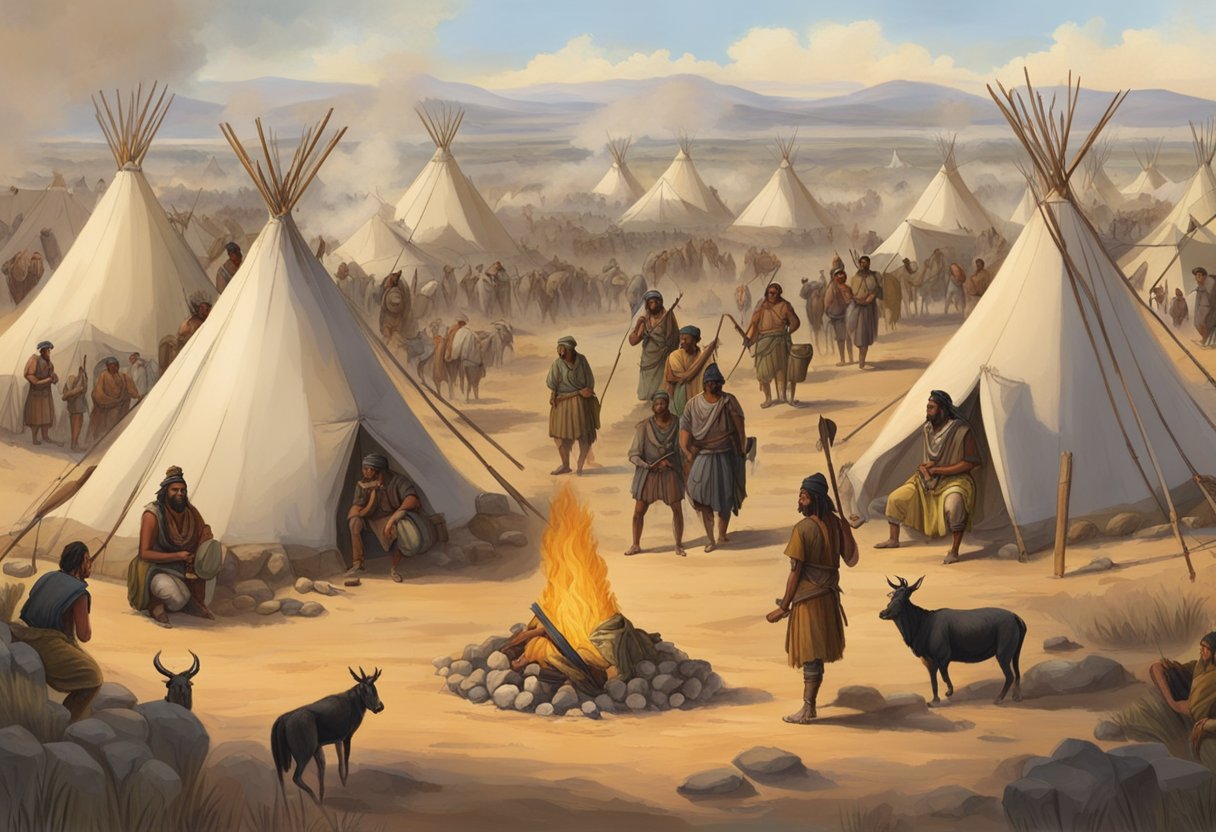
Son of Eliab
Abiram was a member of the tribe of Reuben and played a significant role in the events mentioned in the Bible. He was the son of Eliab and belonged to the Reubenite family, known for their importance within the tribe of Reuben. The name Abiram means “exalted father” in Hebrew, and he had a younger brother named Dathan, who also contributed to the biblical narrative1.
Role in the Tribe of Reuben
Within the tribe of Reuben, Abiram, together with his brother Dathan and their fellow tribe member Korah, engaged in a rebellion against Moses and Aaron. According to the biblical account, they contested the leadership of Moses and questioned Aaron’s exclusive right to the priesthood1. Due to their actions, God punished the conspirators, leading to the ground opening up and swallowing Abiram, Dathan, Korah, and their families1.
This story emphasizes the importance of obeying God’s chosen leaders, as Abiram’s and Dathan’s pride led to their ultimate demise. By understanding Abiram’s position within the tribe of Reuben and his actions against Moses and Aaron, it becomes clear that he served as a significant figure in understanding the power dynamics and conflicts within the ancient Israelite society.
Footnotes
The Legacy of Abiram
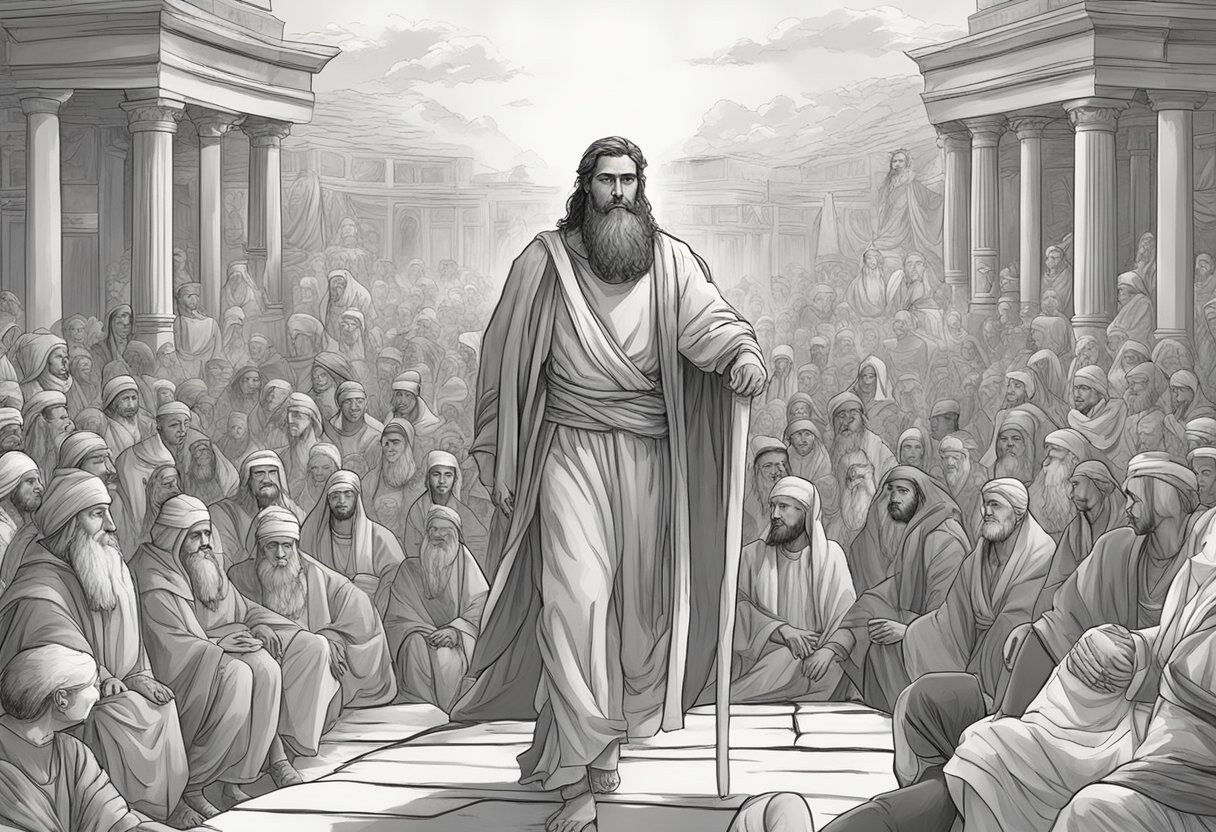
Impact on Israelites
Abiram was a son of Eliab from the tribe of Reuben and played a significant role in challenging Moses’s leadership within the Israelite community. He, along with his brother Dathan, spearheaded a rebellion against Moses and Aaron, claiming that all members of the assembly were equally holy and that Moses was taking on too much authority (Numbers 16:1). This rebellion had a major impact on the Israelites, leading to tensions within the community and testing their faith in God and His chosen leaders.
Here is a table of major places and events during the Israelites’ wanderings in the wilderness after the Exodus:
| Place | Event |
|---|---|
| Wilderness of Sin | First major stop after leaving Egypt. Lack of food causes complaining and desire to return to Egypt. |
| Elim | Location with 12 springs of water and 70 palm trees where the Israelites camped. |
| Wilderness of Sinai | Israelites arrive and camp at the foot of Mt. Sinai. Moses receives the Ten Commandments and law from God. |
| Taberah | People complain about lack of meat and God sends quail but also a plague. |
| Kibroth Hattaavah | More complaining causes God to send a plague at the place of graves of lusting. |
| Hazeroth | Miriam and Aaron speak against Moses’ leadership and Miriam is struck with leprosy. |
| Rithmah | Brief stop during the wanderings. |
| Rimmon Perez | Another stopover location. |
| Libnah | People complain about lack of food and Moses expresses doubts to God. |
| Wilderness of Paran | Spies sent to Canaan return and majority report discourages conquest of the land, causing further rebellion. |
| Kadesh Barnea | Israelites refuse to enter Canaan and are condemned to 40 years of wandering in the desert as punishment. |
During the time of their uprising, Abiram and his fellow rebels faced divine punishment for their actions. God commanded Moses to separate the entire assembly from the tents of these rebels, warning that He would consume them all in an instant. When Moses delivered this message, the ground beneath the tents of Dathan and Abiram opened up, swallowing them, their families, and their possessions, as a clear sign of divine wrath (Numbers 16:25-33).
Connection to Other Key Events in the Bible
Abiram’s rebellion and the subsequent punishment served as a lesson for the Israelites. It emphasized the importance of obedience to God and the consequences of rebelling against His chosen leaders. This incident can also be seen as a precursor to other significant events in the Bible where divine judgment is enacted upon those who defy God’s authority.
For instance, the story of Abiram resonates with the later account of Korah’s rebellion (Numbers 16:1-35), where a group of Levites, led by Korah, challenged the priestly authority of Aaron and his descendants. Similar to Abiram’s uprising, the rebels faced God’s wrath, reinforcing the lesson that disobeying God’s established order would result in great punishment.
In summary, Abiram’s legacy in the Bible represents the importance of heeding divine authority and serves as an example of the consequences faced by those who challenge the leadership established by God. Through his actions, Abiram’s story provides valuable insight into the dynamics of the Israelite community and their relationship with God during their journey to the Promised Land.
Abiram’s Place in Religious Texts and Traditions
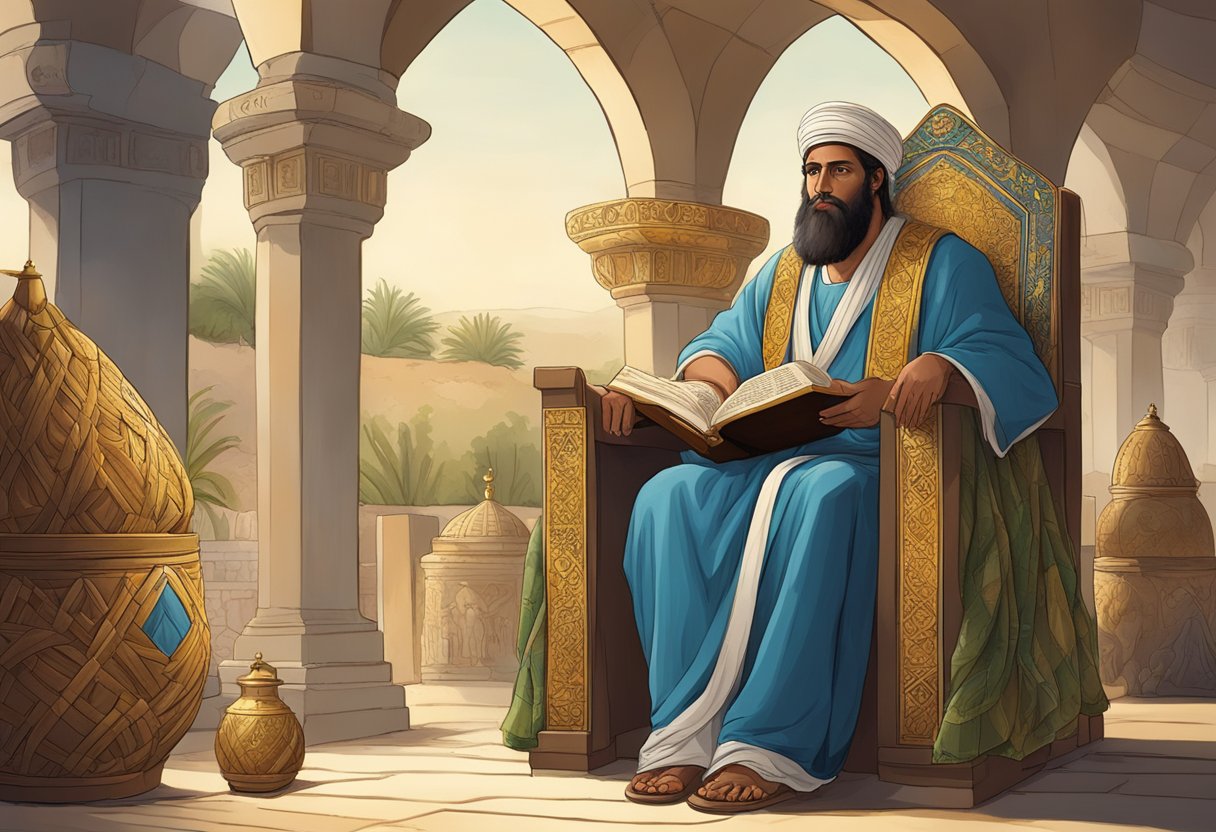
Abiram in Jewish Tradition
Abiram is mentioned in the Hebrew Bible as a son of Eliab from the tribe of Reuben. He, along with his brother Dathan, joined Korah in a rebellion against Moses and Aaron (Numbers 16:1). This rebellion, in which they questioned Moses’ authority and the priestly leadership of Aaron, ultimately led to their downfall. According to the Jewish tradition, Abiram and his co-conspirators were swallowed by the earth as a punishment for their actions (Num 16:32).
In the Talmud, Abiram is also depicted as an antagonist who tried to disrupt the harmony of the Israelites during the Exodus (source). For instance, he is accused of spoiling manna and being involved in the negative report by the spies sent to Canaan. Abiram’s negative influence on the Israelite community is seen as one of the factors that led to their prolonged journey in the wilderness.
Abiram in Christian Interpretation
In Christianity, Abiram’s rebellion against Moses and Aaron serves as a cautionary tale about pride and disobedience. Some Christian interpretations emphasize the importance of humility and obedience to God’s chosen leaders (source). Through the story of Abiram, believers are encouraged to respect and submit to God’s will, as demonstrated by the tragic end of those who openly defied Moses and Aaron.
Moreover, Abiram’s story is frequently cited in discussions about the consequences of opposing God’s plan or authority, as it showcases the severity of such actions. As a result, Abiram has come to symbolize the perils of pride and rebellion against divinely appointed leaders in the Christian tradition.
Interpretation of Abiram’s Punishment
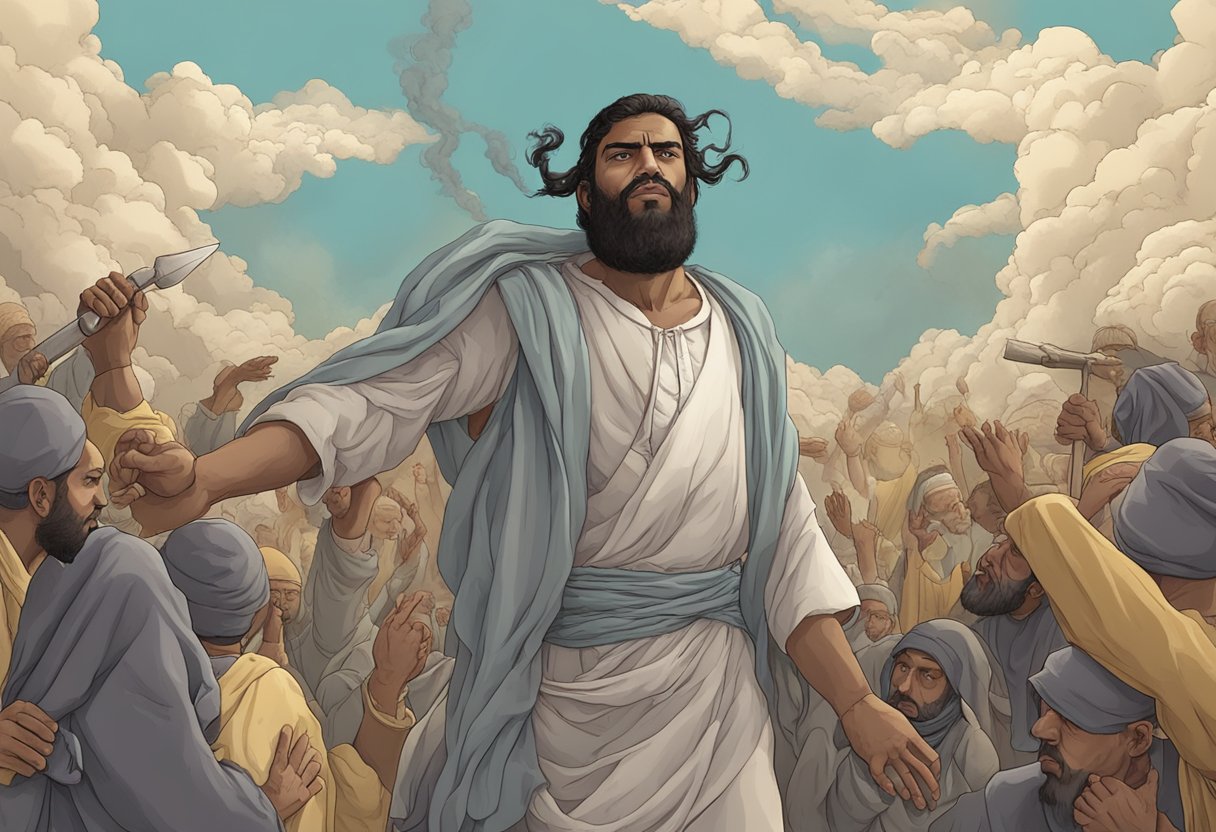
Biblical and Scholarly Interpretations
Abiram, son of Eliab from the tribe of Reuben, was one of the key figures participating in the rebellion against Moses and Aaron, alongside his brother Dathan and their associate Korah1. The Bible records that the rebels were punished by the earth opening up and swallowing them alive as an act of God’s wrath2.
Various scholars have tried to understand and interpret the significance of the punishment meted out to Abiram and his co-conspirators. Some believe that this event represents divine retribution for their challenge to the God-given authority of Moses and Aaron3. Others see it as a demonstration of God’s power and presence, emphasizing the importance of obedience and submission to the religious leaders4.
The Symbolism of the Earth’s Swallowing
The vivid imagery of the earth swallowing the rebels carries with it a deeper symbolism. It can be viewed as representing the ultimate separation from God’s presence, as those who are swallowed by the earth are no longer part of the living community of the Israelites5. This could serve as a powerful warning to others contemplating rebellion or disobedience, underscoring the absolute necessity of faithfulness to God and adherence to his appointed leaders.
The swallowing of the earth may also symbolize the destructive consequences of dissent and division within a community. In this context, the earth’s swallowing could be seen as a metaphor for the disruptive effects of disunity, leading to ruin and disaster for those who choose to reject the guidance and authority of their leaders6. In essence, the event serves as a cautionary tale, stressing the importance of unity and the dangers of discord.
In conclusion, the punishment of Abiram and his fellow rebels in the Bible is open to various interpretations, both in its direct meaning and its deeper symbolism. Scholars continue to analyze the story to gain a fuller understanding of the biblical narrative and its implications for human behavior and society.
Footnotes
- Who was Abiram in the Bible? | GotQuestions.org. Retrieved from https://www.gotquestions.org/Abiram-in-the-Bible.html ↩
- Numbers 16:31-33 (NKJV). ↩
- Bible Study Guides – The Rebellion of Korah, Dathan, and Abiram. Retrieved from https://www.stepstolife.org/article/bible-study-guides-the-rebellion-of-korah-dathan-and-abiram/ ↩
- Who Were Dathan and Abiram? – The Eternal Antagonists of the Bible. Retrieved from https://www.chabad.org/library/article_cdo/aid/4423161/jewish/Who-Were-Dathan-and-Abiram.htm ↩
- Leviticus 26:21-22 (NKJV) ↩
- 1 Corinthians 1:10 (NKJV) ↩
Abiram in the Context of the Israelites’ Journey
Life in Egypt
Abiram, a son of Eliab from the tribe of Reuben, lived during the time when the Israelites were enslaved in Egypt. Along with Dathan, he was involved in slandering Moses to Pharaoh, attempting to have him executed, but Moses miraculously survived and escaped to Midian1. This incident marked the beginning of the animosity between Abiram, Dathan, and Moses.
The Exodus
When God appointed Moses to lead the Israelites out of Egypt, Abiram was among the people who experienced the miraculous events of the Exodus. Abiram and Dathan continued to harbor resentment towards Moses, which eventually led to their rebellion against his leadership. In Numbers 16, Abiram and Dathan, along with Korah the Levite, gathered 250 renowned leaders of the Israelites to challenge Moses’ authority2.
Life in the Promised Land
Abiram, Dathan, and their fellow rebels were not successful in overcoming Moses’ authority. As a consequence of their rebellion, the ground opened up and swallowed them, along with their families and possessions3. This served as a stark warning to the Israelites of the dangers of rebelling against God’s appointed leaders. Abiram’s story is a reminder of the importance of trusting in God’s chosen leaders as the Israelites journeyed towards the Promised Land.
Footnotes
Best Old Testament Commentaries
Below is a table featuring some renowned Old Testament commentaries, their publishers, and websites where they can be found. As always, it’s best to confirm availability on multiple platforms or the publishers’ websites.
| Commentary Name | Publisher | Website |
|---|---|---|
| The New International Commentary on the Old Testament | Eerdmans | Eerdmans |
| Word Biblical Commentary | Zondervan | Zondervan |
| Baker Commentary on the Old Testament | Baker Academic | Baker Academic |
| The Anchor Yale Bible Commentary | Yale University Press | Yale University Press |
| Tyndale Old Testament Commentaries | InterVarsity Press | InterVarsity Press |
| Expositor’s Bible Commentary | Zondervan | Zondervan |
| The Old Testament for Everyone | Westminster John Knox Press | Westminster John Knox Press |
Note: As with the New Testament table, this table provides generalized examples and does not list each volume within the commentary series. The commentaries can usually be found on the publishers’ websites or other online book retailers such as Amazon or Christianbook. It is always advisable to check for the most accurate and up-to-date information regarding availability.



